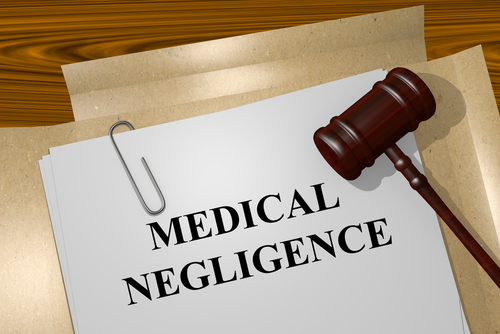Attention Doctors: A Note on Medical negligence [Medico-legal]
M3 India Newsdesk May 20, 2018
In recent times, the Indian society is undergoing an increasing understanding or knowledge regarding the patients’ rights and the sufferings caused due to medical negligence.

Medical Negligence
Negligence is generally, the lack of care that the doctor in-charge should have taken during the crisis period. Any side effects or a failure achieved during operation is not considered as Negligence. But, Treatment without informed consent may also be considered as negligence.
The basic elements of Negligence are
(a) Duty of Care, (b) Breach of Duty, (c) Cause, in fact, (d)Proximate Cause, (e) Damage
All these criteria’s must be fulfilled to prove the case of negligence.
If the doctor refuses to accept the fees, and then there can be an exception for medical negligence under Tort as per the definition of service is mentioned in sec 2(1) of Consumer protection Act 1986.
It has been held in different judgments by the National Commission and the Hon’ble Supreme Court that a charge of professional negligence against a doctor stood on a different footing from a charge of negligence against a driver of a vehicle. The burden of proof correspondingly greater on the person who alleges negligence against a doctor. It is known fact that things can go wrong even wit the best doctor. And the guilt or the negligence should be established beyond all reasonable doubts that his skill fell below reasonable care that he ought to take during the treatment/ surgery.
Careful consideration pointers for practising doctors/hospitals/nursing homes
1. No prescription should ordinarily be given without actual examination. The tendency to give prescription over the telephone, except in an acute emergency, should be avoided
2. A doctor should not merely go by the version of the patient regarding his symptoms but should also make his own analysis including tests and investigations where necessary
3. A doctor should not experiment unless necessary and even then he should ordinarily get a written consent from the patient
4. An expert should be consulted in case of any doubt. Thus, in Indrani Bhattacharjee (OP No. 233 of 1996 decided on 9-8-2007 [NC]), the patient was diagnosed as having 'mild lateral wall ischemia.’ The doctor prescribed medicine for gastroenteritis but he expired. It was held that the doctor was negligent as he should have advised consulting a cardiologist in writing
5. A full record of the diagnosis, treatment, etc., should be maintained.”
A snapshot
1. Negligence arising from medical acts may result in a civil action by the injured party (claimant) or a criminal prosecution by the state.
2. Medical negligence is proved if all components of the three-part test are established on the balance of probabilities (civil suit) or beyond reasonable doubt (criminal prosecution).
3. The three-part test establishes that the doctor owed a duty of care to the patient, the duty of care was breached, and as a direct result of the breach the patient suffered harm.
4. Successful civil actions result in monetary compensation to the injured party or dependents which may be paid by the employing trust or the doctor's defence organization.
5. Successful criminal prosecutions may result in a custodial sentence for the doctor and an additional GMC fitness to practice hearing.
6. Good record keeping and adherence to established practice guidelines are important as negligence cases may take many years to be resolved.
To sum it up, it is equally essential to note that the protection of patient's right shall not be at the cost of professional integrity and autonomy. There is definitely a need for striking a delicate balance. Otherwise, the consequences would be inexplicable. Negligence should be guided by the principle the reasonableness of common man prudence and negligence must be established in order to give the compensation in certain cases.
The writer of this content is a student of Law.The opinions, beliefs and viewpoints expressed by the writers and forum participants on this website do not necessarily reflect the opinions, beliefs and viewpoints of the editors or publisher of the website. Readers are advised to exercise their own judgement while using the content.
-
Exclusive Write-ups & Webinars by KOLs
-
Daily Quiz by specialty
-
Paid Market Research Surveys
-
Case discussions, News & Journals' summaries